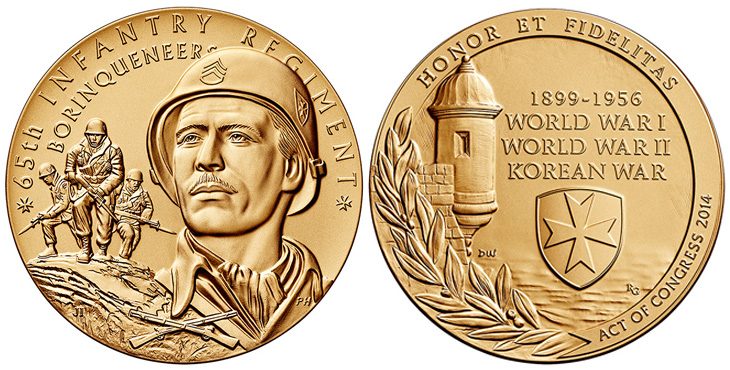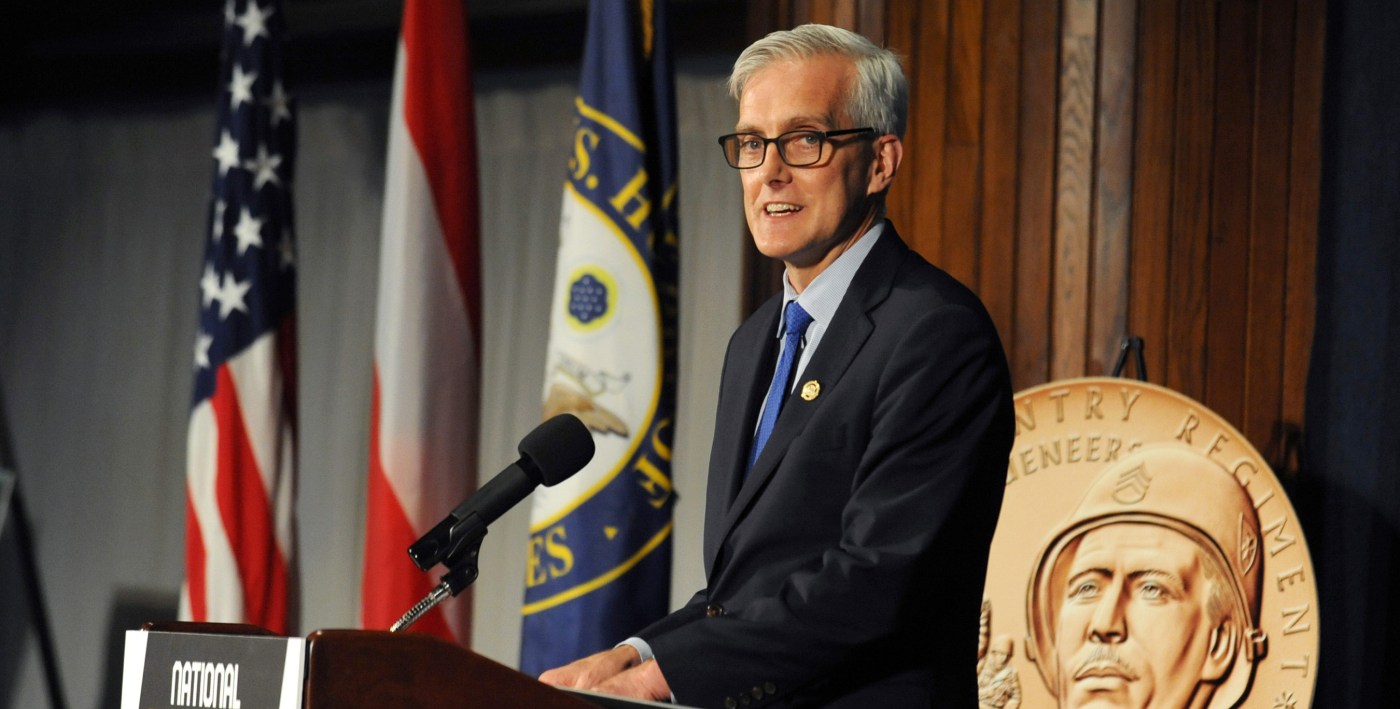Veterans from the U.S. Army’s 65th Infantry Regiment—known as the Borinqueneers—received special recognition during an event at the National Press Club April 13.
On National Borinqueneers Day, VA Secretary Denis McDonough was one of the government officials praising the Veterans’ service, several of whom joined virtually from Fort Buchanan, Puerto Rico.
McDonough highlighted the service of Army Master Sgt. Juan Negron, who received a Medal of Honor in 2014 for his heroic actions during the Korean War. During a firefight near Kalma-Eri, Korea, Negron exposed himself repeatedly to enemy fire. He held his company’s right flank, hurling hand grenades at short range toward the enemy.
“Master Sergeant Negron is just one of the thousands of brave soldiers who have served the United States in the 65th Infantry Regiment, the Borinqueneers,” McDonough said. He said the Borinqueneers are among a group of honored patriots who fought racism to serve honorably.
“All these units taught America that honor, courage and patriotism have nothing to do with race, ethnicity or gender, but on the passion of the patriot’s heart,” McDonough said.
Army Chief of Staff Gen. James C. McConville said one of his staff members grew up in Puerto Rico. He said the stories of bravery from the 65th is what inspires generations to follow the Borinqueneers.
“I believe the best way to honor you all is through our actions in the Army, every single day,” the general said. “We stand on your shoulders, of heroes like you, and the generations of soldiers of today and in the future will strive every day to honor your service, to honor your courage, to honor your determination and your duty.”
The Borinqueneers were a segregated unit of the U.S. Army formed by Congress in 1898. The Puerto Rican and Latino Veterans served during World War I, World War II and the Korean War.
The National Defense Authorization Act for Fiscal Year 2021 designated April 13 National Borinqueneers Day. In the act, Congress “recognizes the bravery, service, and sacrifice of the Puerto Rican soldiers of the 65th Infantry Regiment in the armed conflicts of the United States in the 20th and 21st centuries.” Additionally, Congress “expresses deep gratitude for the contributions to the Armed Forces that have been made by hundreds of thousands of patriotic United States citizens from Puerto Rico.”

The obverse (heads side) and reverse (tails side) of the Borinqueneers Congressional Gold Medal.
Congressional Gold Medal
The national day coincides with the Borinqueneers receiving a Congressional Gold Medal at Emancipation Hall of the U.S. Capitol Visitor Center April 13, 2016.
The obverse (heads side) design depicts a portrait of a fictional Borinqueneer. The soldiers in the background are in an inverted “V” formation. They are taking the high ground with fixed bayonets during an assault on the enemy during the Korean War. The crossed rifles insignia appears at the bottom of the design.
The reverse (tails side) design depicts the Castillo de San Felipe del Morro of San Juan, Puerto Rico. It is a 16th-century citadel, a central symbol of Puerto Rico. It is the preferred military command ceremonial parade site of the 65th Infantry Regiment.
Topics in this story
More Stories
Summer Sports Clinic is a rehabilitative and educational sporting event for eligible Veterans with a range of disabilities.
Report examines the input of over 7,000 women Veterans: They are happier with VA health care than ever before.
Veterans and caregivers, you can help shape the future eligibility requirements for the VA Caregiver Support program.







This is a great post! My uncle and namesake “Antonio”, Pablo Antonio de Jesus was, as the story goes and based on recollection of my grandmother and mother, one of the first Borinqueneers to die in the war. His service is the main reason I joined and eventually served in uniform for 38 years going from Navy E-1 to Navy Captain (O6).
I was working with an Active Duty Navy Lieutenant Commander named Dave Schwind trying to find more details but the trail went cold when we discovered that the St. Louis National Archives had suffered a fire in 1973 and a lot of the records containing details of those Puerto Rican’s who gave so much were lost.
If my recollection is accurate, I recall my grandmother and providing a few details as they were given to them when his body was shipped to PR for burial in the town of Cataño, which is where he was born and raise. He was the first Puerto Rican to die in combat in Korea as a result of a grenade coming onto the trench there were using as cover (about 6 others according to my grandmother and my recollection). When he saw the incoming grenade he jumped on it and covered the explosion. He allegedly saved the other six members of his team. According to the official transcript as presented to my grandmother, he lost one leg, an arm and sustained several other injuries. He survived for 9 days after the incident but succumbed to his injuries.
I recall having his Purple Heart on my dresser as a child which served as inspiration to follow in his footsteps. He and I have been the only two in our family to serve in active duty.
Keep up the great work!
S/Dr. L.A. Tony Hernandez